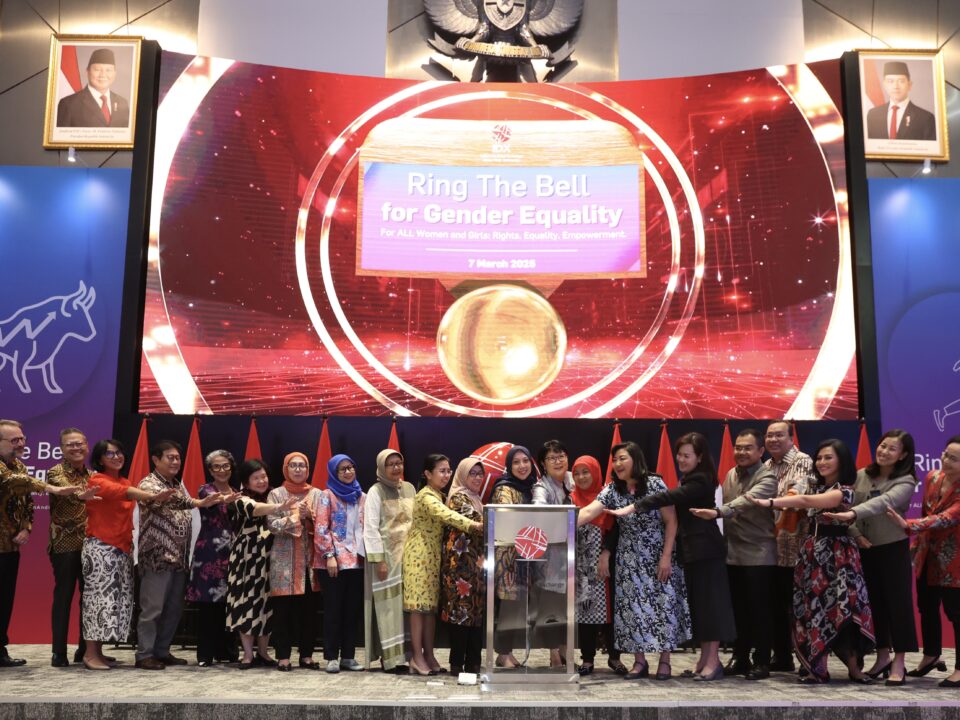
Many Changes Occur, When Gender Equality Is A Priority
November 22, 2023
Confident of Being a Woman Leader in the Male-Dominated Sector
December 5, 2023Transportation in Jakarta is still far from adequate. Although there is new transportation such as MRT and LRT are already available, the range is still limited. Not all areas in Jakarta and nearby cities such as Depok, Tangerang and Bekasi are reachable. It takes a lot of time and money for workers to travel from home to the office.
This is very influential for women workers. Women who are often charged with housework or as caretakers, make women have to choose between career and family. “Women are multitaskers and are often caretakers. They must pay attention to children, husbands, and even parents. That is why women tend to have more sporadic travel routes than men. They must take the child, go to the market, pick up another child, etc.” explained Fani Rachmita, Senior Communications & Partnership Manager of ITDP Indonesia (Institute for Transportation & Development Policy), a non-profit organization engaged in transportation sustainable.
Most of the workers in Jakarta live in nearby cities such as Tangerang, Depok, Bekasi and Bogor. It takes an average of 2 hours from home to office. A woman with a family must wake up earlier, because she must prepare her family’s needs before she can go to the office herself. Therefore, easy transportation greatly influences whether or not a woman worker stays in a job.
Research conducted by the Australia Indonesia Partnership for Economic Governance (AIPEG), SurveyMETER, and RAND for more than 500 women who use Transjakarta, shows that 31% of women have refused a job position due to transportation problems. In addition, this study also showed 14.4% of women with children under 5 years old stopped working because of transportation problems.
Some respondents said that using public transportation takes more time, often they must connect to other transportation modes. There is not much public transportation that reaches the destination directly, compared to online taxi which is easier to reach the destination.
Safety issues are also one of the considerations of women workers in choosing modes of transportation. According to the Tirto report, in 2018 there were 34 cases of sexual harassment that occurred in the KRL. It was not including other cases not reported by the victim.
Survey conducted by NGO Hollaback! Jakarta, WOMEN, Indonesian Traffic Lantern, Indonesian Cross-Feminist Association, and Change.org of 62,000 Indonesians in 2018 also showed that 19% of cases of sexual harassment occurred on public transportation.
“When the men were asked about their complaints about transportation problems, many responded to the traffic jam and requested that the road be widened. Meanwhile, mothers will complain about the poor quality of public transportation, reckless drivers, fear of being hit when walking, to the worry of their children going to school on foot or riding a bicycle, “Fani explained the results of research conducted by the team ITDP against residents in several urban villages in DKI Jakarta.
Meanwhile, in downtown, other problems are the visibility of public space and public transportation itself. “There are still many JPO that are covered with billboards, so the situation inside JPO is not visible from the highway. Because of this, users are threatened with security, such as being vulnerable to being harassed, even raped,” said Fani. In November 2015, a female employee was raped at JPO Lebak Bulus, South Jakarta.
Fani explained that the root of this problem was the small portion of women in the ranks of stakeholders and decision makers. This has an impact on the lack of development and transportation planning that focuses on the needs of women.
In fact, the public transportation system that sides with women will have a big influence on women’s productivity. Research titled Gender in Public Transportation by SADAQA shows that increasing the accessibility and use of public transportation by women will increase the economic and social growth of a country as a whole.
McKinsey stated that women’s transportation needs differ from men in three ways: First, women in Indonesia are more likely to walk or use public transportation than men, because husbands are preferred in using private vehicles; that means that investment in public transport and non-vehicle roads is more important for women than men. Second, women tend to travel more (and make more stops on each trip) than men and travel in less busy times to locations outside the business center because they travel to complete household chores and take children to school. Third, safety is an important concern for women. If Indonesia wants to do more to improve their safety, more women can take jobs outside the home.
Policy makers must also use public transportation products that they design and manage, in order to create modes that are inclusive, comfortable and safe not only for women but also parents and people with disabilities. Policy makers must also make use of public transportation facilities, not constantly using private or official vehicles. (admin)
Source:
https://www.asumsi.co/post/sudahkah-transportasi-umum-di-jakarta-ramah-perempuan
https://www.worldbank.org/en/news/feature/2016/03/08/preventing-violence-against-women-in-transport-systems
http://library.fes.de/pdf-files/bueros/amman/15221.pdf
https://www.change.org/l/id/pernah-jadi-korban-pelecehan-di-ruang-publik-kamu-nggak-sendirian





